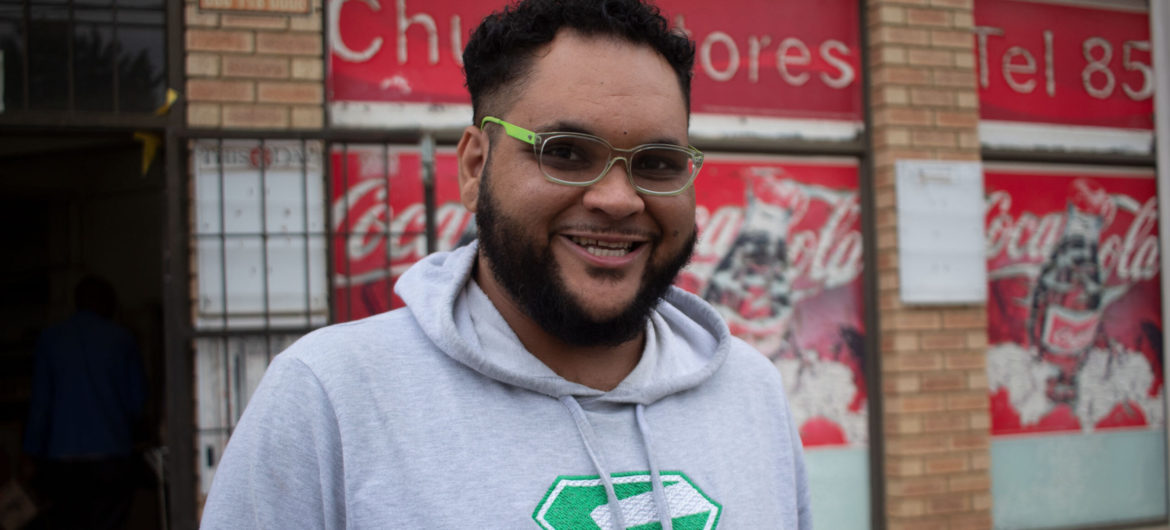Award-winning activist and documentarian Angelo Louw welcomed the world to his childhood neighbourhood in an online video, where he spoke about the impact of plastic pollution and the critical role that people of colour play in the climate justice movement.
Louw, who is from a township south of Johannesburg called Lenasia, heads Greenpeace’s Pan-African Plastic Project. He spoke candidly about how previously disadvantaged communities bear the brunt of environmental injustice, and how industries like plastic producers have contributed to the deterioration of communities like his.
“It used to be that the infamous red sand was the only thing that was a nuisance causing a mess; but these days, there is something else,” said Louw. “There is so much plastic [laying] around that you don’t even notice it anymore.”
Louw is the winner of the 2019 TYI SADC Top 100 award which recognises the most influential young professionals in Sub-Saharan Africa. The Greenpeace documentary he directed GUTTED, exposing the plight of the Cape Flats fishing community, won several international awards last year.
In the online video shared on Greenpeace Africa’s Instagram account, Louw said that he had always dedicated his life to social redress and restoring dignity to communities like his; and that he had recently come to understand that climate justice is at the forefront in doing so.
“I grew up in an era after apartheid where I saw people like my grandfather and my grandmother just really shrink themselves when they would walk into a room and there were white people there,” Louw said. “So, [restoring dignity] was always a focus for me.”
He added, “As I’ve become more embedded in the climate change movement, I’ve come to realise that this struggle is our struggle. The people who are going to be most affected by the climate crisis are communities like mine because we can’t afford to buy ourselves out of it.”
The video was released in the build-up to the GAIA Global Day of Action taking place on Wednesday, where people worldwide are encouraged to demand that their leaders take action against exploitative industries like plastic as we build back better at the end of the Covid-19 pandemic.
“It’s becoming increasingly important for people like us, for people of colour, to join the climate movement. Not only to have a place at the table, but to really safeguard the dignity of our communities,” Louw concluded.
Watch full documentary here:




